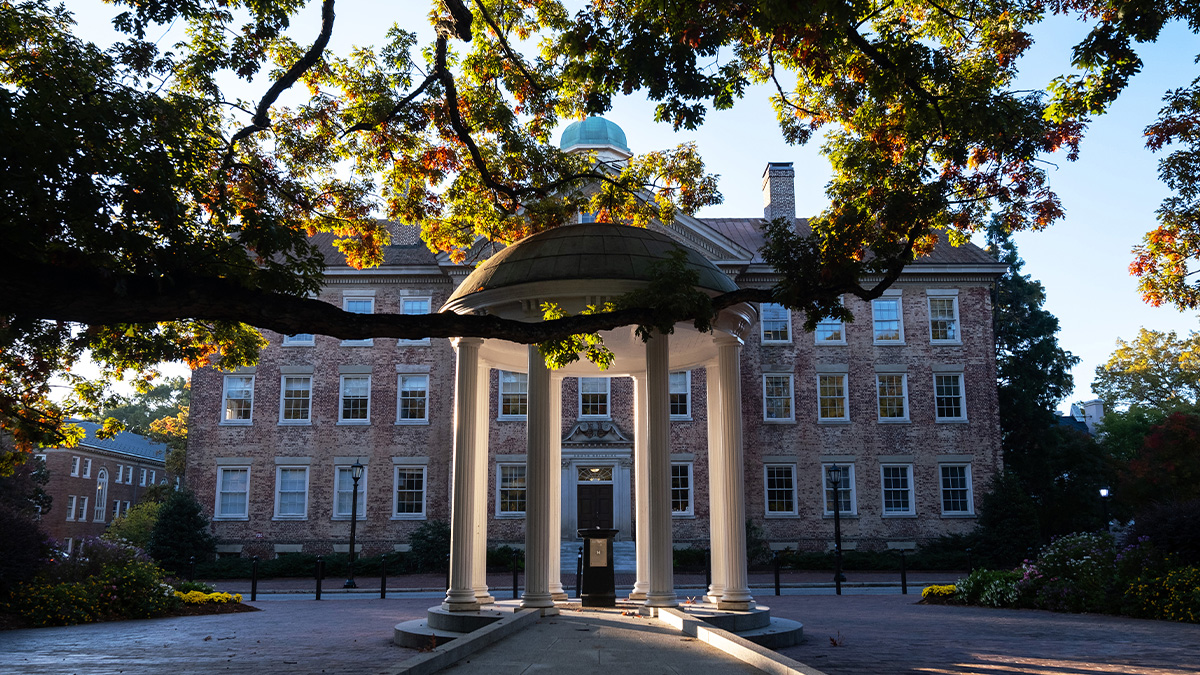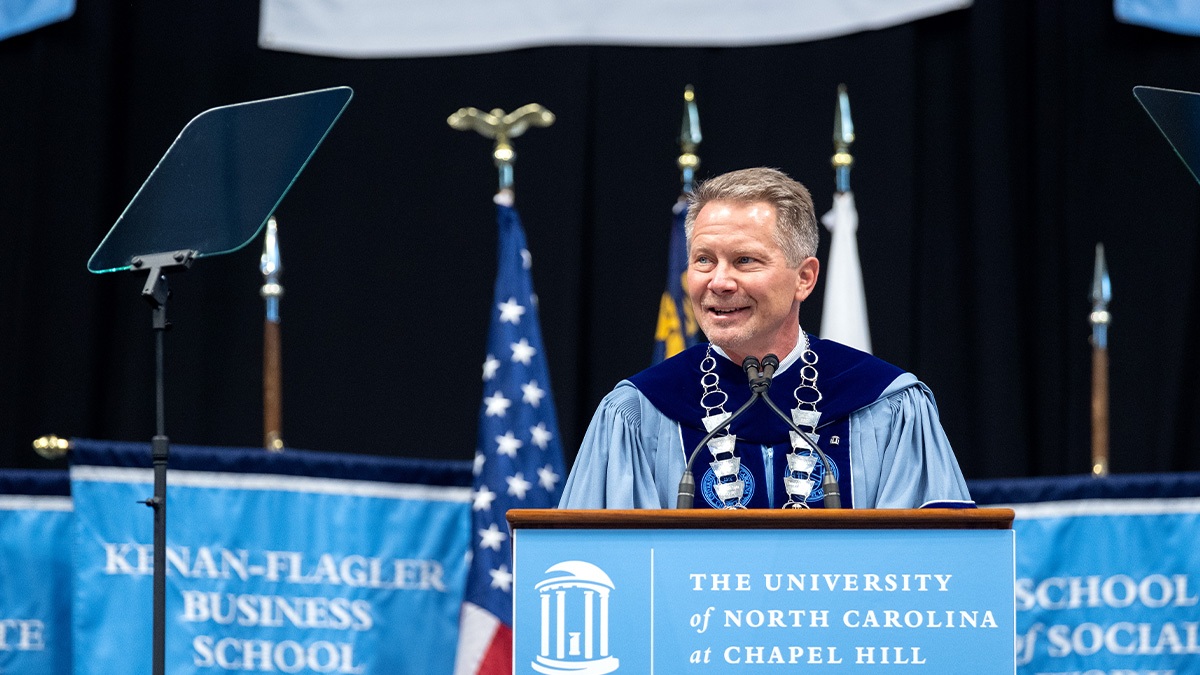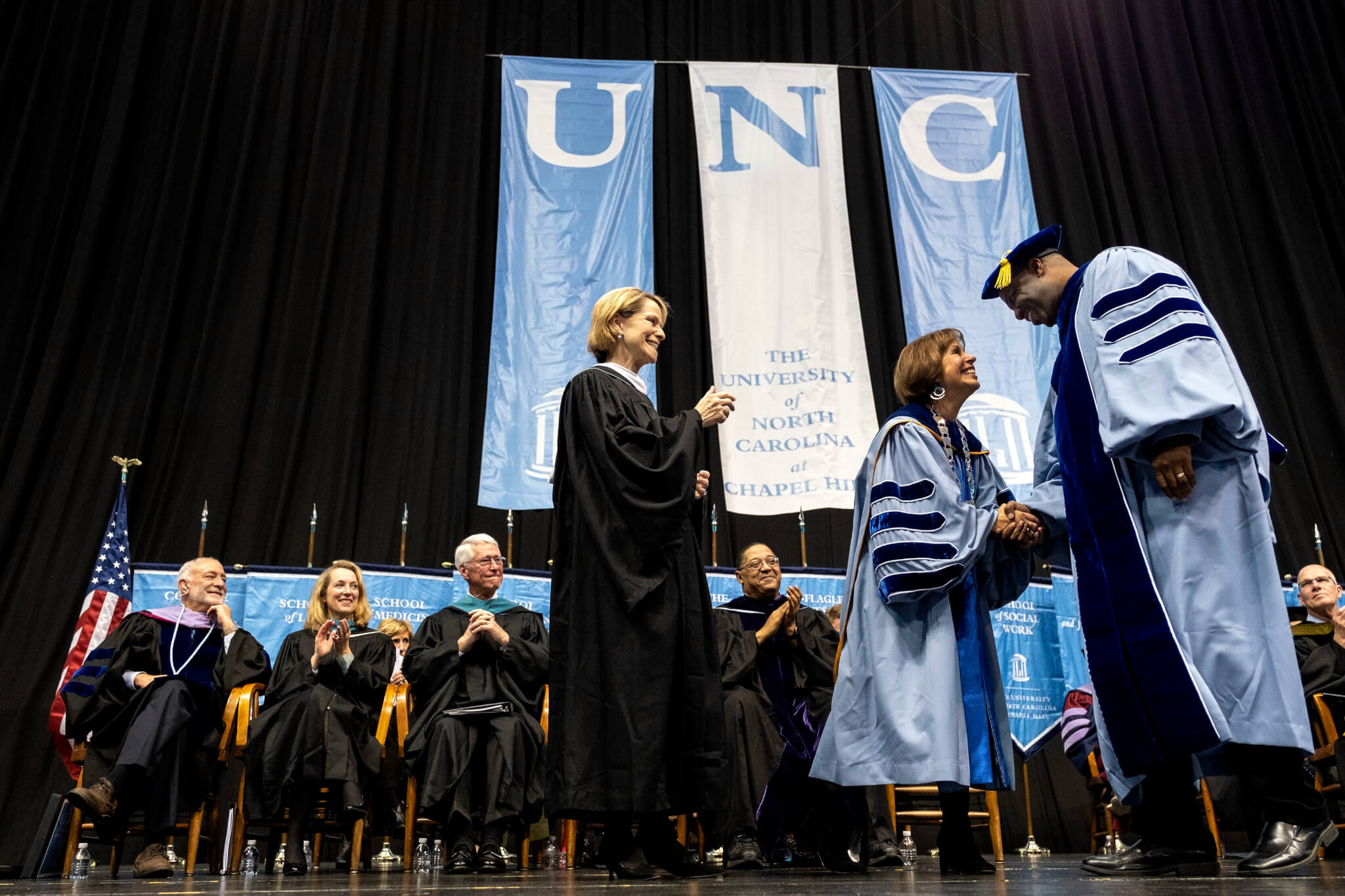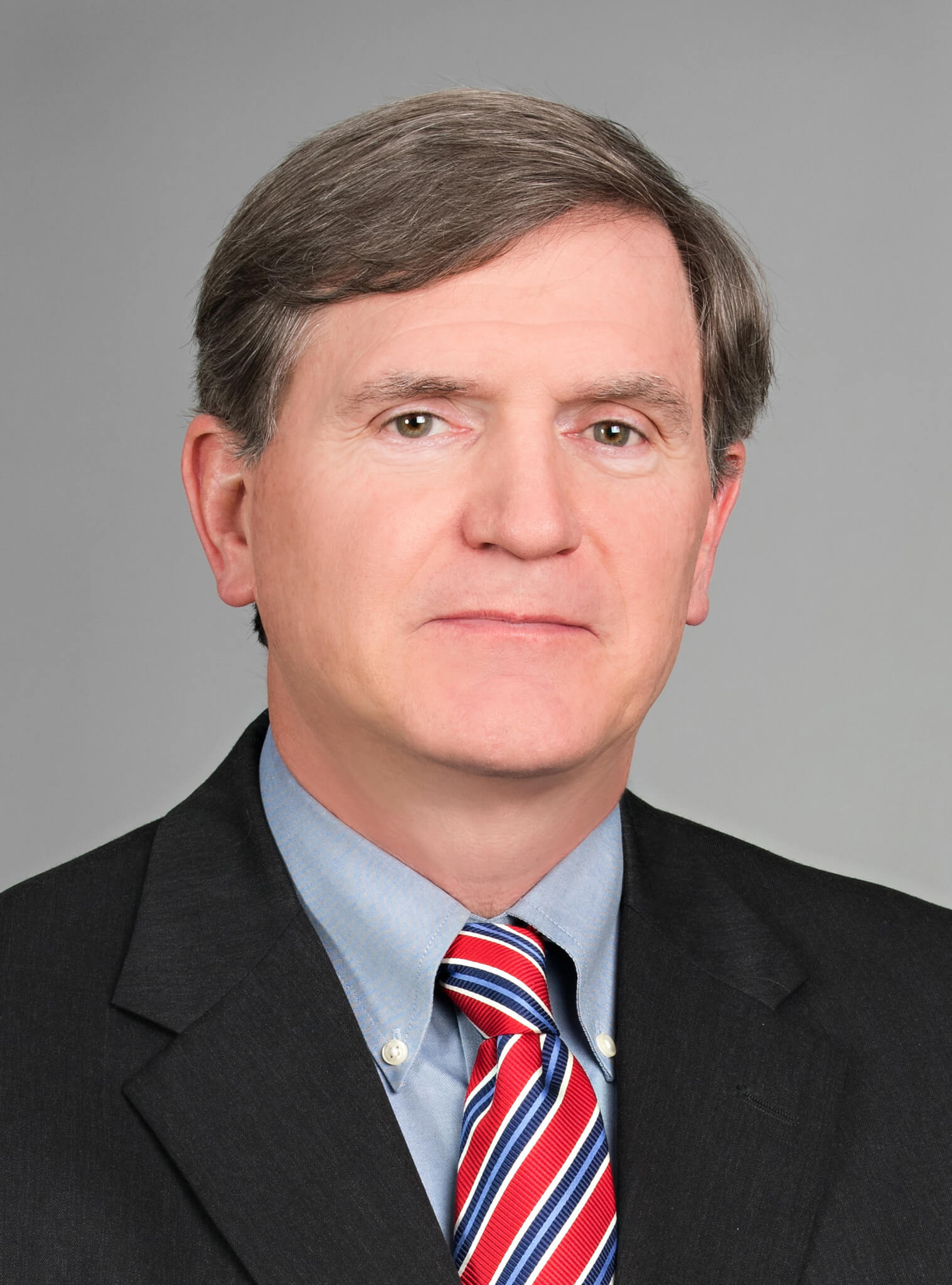Folt takes a deep dive into Galápagos research
On her recent trip to Ecuador and the Galápagos Islands, Chancellor Carol L. Folt dived (literally) into the research Carolina faculty and staff and their collaborators at the Universidad San Francisco de Quito (USFQ) are conducting.
Folt’s June 23-27 visit included giving the commencement speech at USFQ, discussions with researchers from both universities and a dive to see hammerhead sharks and sea turtles with a team from the Galápagos Science Center on San Cristóbal Island.
Carolina and USFQ constructed the state-of-the-art research facility in the Galápagos – which was named the first UNESCO World Heritage site in 1978 – to advance a shared goal of promoting science and education to help Ecuador protect fragile island ecosystems and enhance the lives of the islands’ inhabitants. This model of sustainable development and conservation has implications for ecosystems around the globe faced with the challenges of balancing economic development and resource conservation.
Faculty and students from both universities use the center, located next to USFQ’s undergraduate teaching facility, the Galápagos Academic Institute for the Arts and Sciences, to conduct research in the Galápagos archipelago. Carolina students also participate in study abroad educational programs organized by the UNC Center for Galápagos Studies and based at the institute.
On the first day of the trip, Folt met with USFQ President Carlos Montúfar and Chancellor Santiago Gangotena (who received his Ph.D. in physics from Carolina in 1977 and founded USFQ in 1988) in Quito and participated in a ceremonial signing of a memorandum of understanding between the two universities.
In her commencement remarks the following evening, Folt underscored the importance of providing global opportunities for students and faculty through partnerships like this one that has produced the joint Galápagos Science Center, as well as research funding collaborations and student engagement.
Since 2011, more than 150 UNC students have participated in Galápagos study abroad programs that encourage movement between the classroom, field and laboratory. One team of Carolina students spent a summer assessing the quality of beach and household tap water on the islands. Other students have focused on the archipelago’s government and institutions, response to laws promoting sustainable tourism and food security. The students are developing valuable skills and addressing complex problems in their studies and bringing that knowledge home to help solve similar problems in North Carolina.
The next morning, Folt flew over the Pacific Ocean to San Cristóbal Island in the Galápagos, about 600 miles west of the South American continent. She toured the Galápagos Science Center and visited Darwin’s Cove, the place where scientist Charles Darwin first came on shore in 1835. Darwin’s studies in the Galápagos led him to develop his theory of evolution.
“Visiting with @UNC students in the Galápagos & exploring the harbor where Darwin first landed. For a biologist, it doesn’t get much better!” Folt tweeted.
UNC students and faculty members are researching ways to save rare species like Galápagos penguins and sea lions, Darwin’s finches and giant tortoises from extinction. The issues that affect the Galápagos also affect the people on the coastlines of North Carolina – issues of beach erosion, issues of overdevelopment, issues of development versus conservation.
On the following day, Folt accompanied researchers from both universities to visit active research sites, including a newly discovered nursery for young sharks in a cove just off Playa Grande.
On her last morning on the islands, Folt joined a class led by Carolina marine sciences professor Adrian Marchetti to learn more about the students’ fieldwork at La Lobería beach. Part of this summer’s UNC Study Abroad program, the class is working at this coastal field site where Galápagos Science Center researchers conduct sea turtle, marine iguana and beach dynamics research.
By Susan Hudson of the University Gazette



